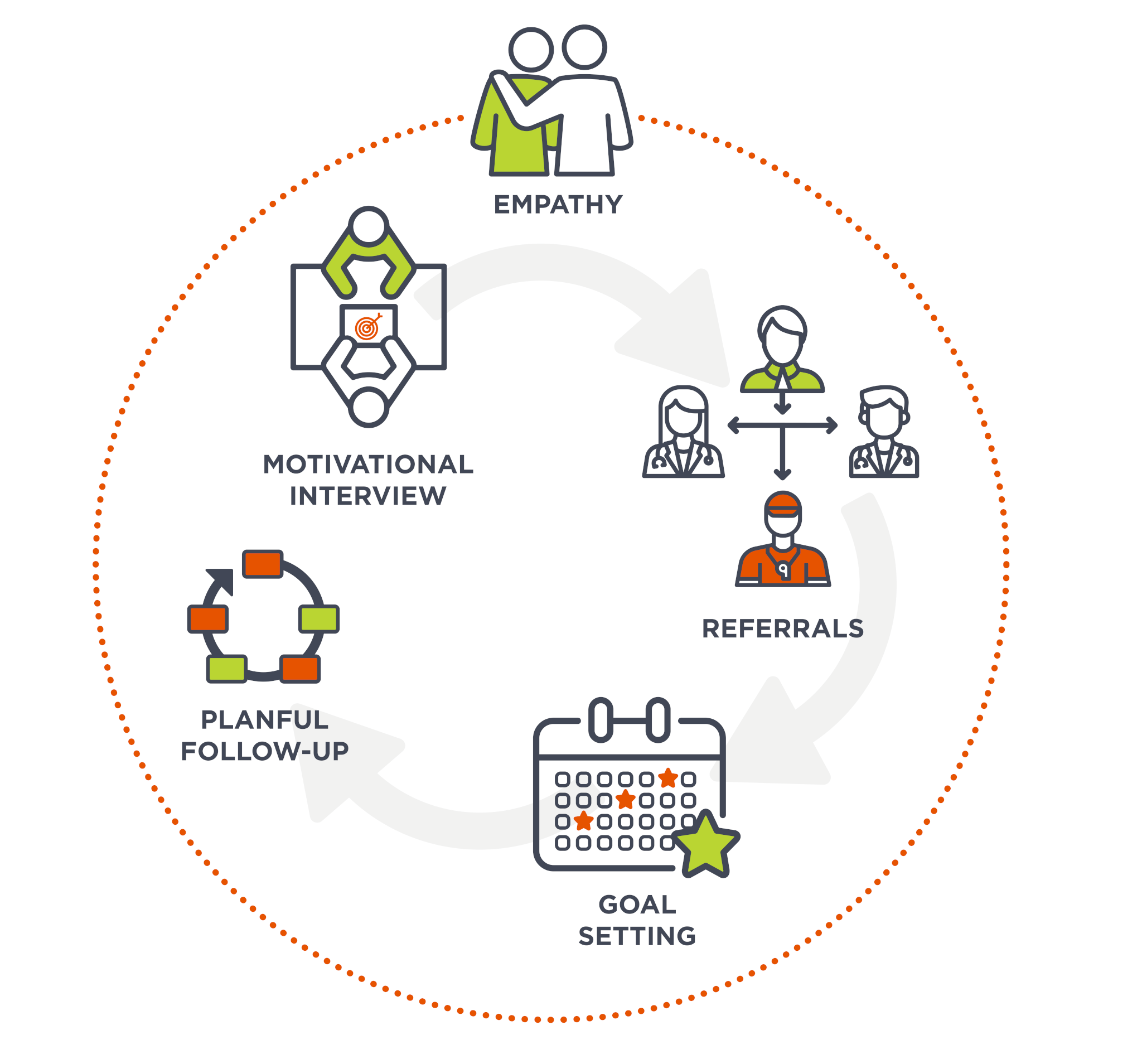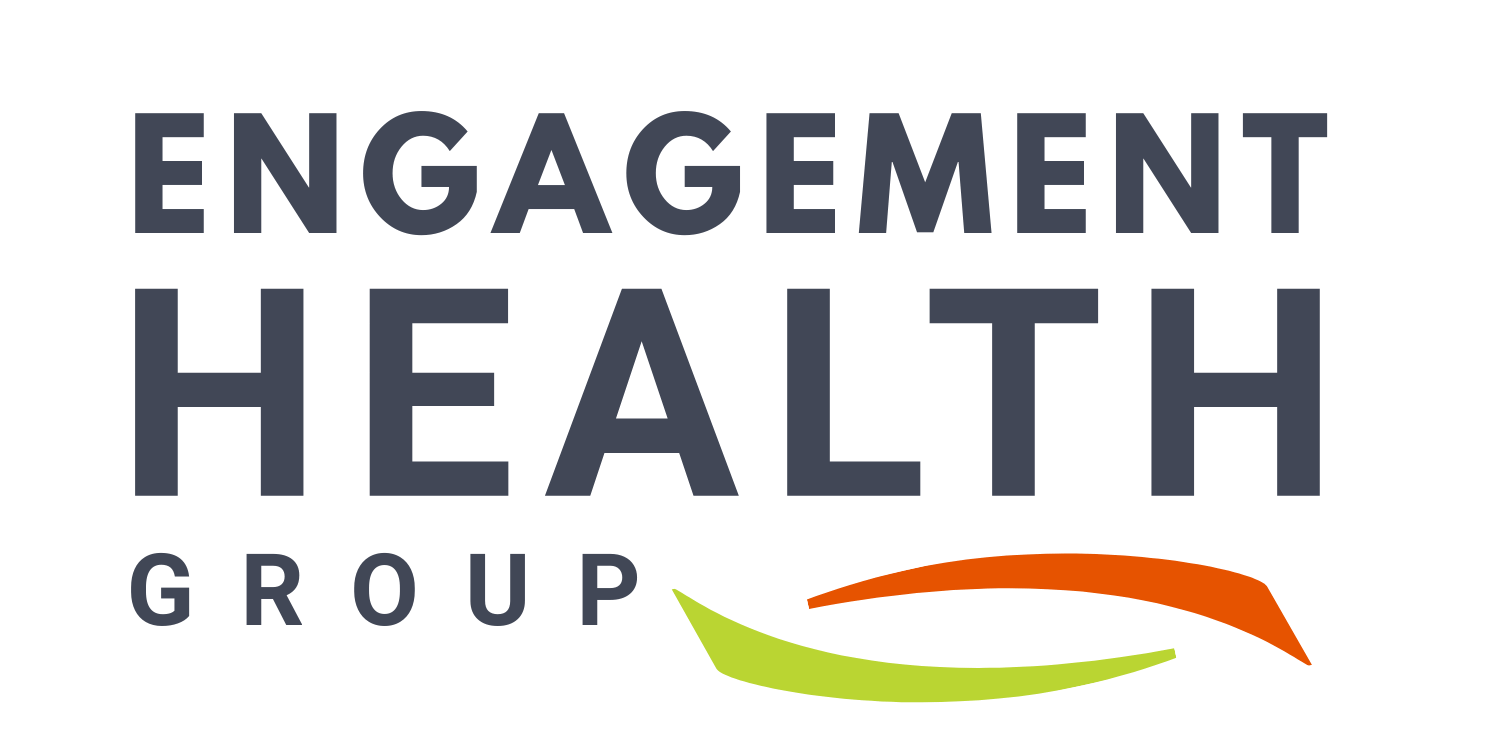Behavioral Health Coaching
The Key to Superior Engagement and Healthier Habits to Minimize Chronic Disease
EHG provides year-round, personalized health coaching for employers. Your organization’s dedicated health coaches will become part of the family, working with each participating member, encouraging and inspiring them to live their best life.
There is a significant difference in results when a health coach is present, with members being up to 350% more likely to kick unhealthy habits with coaching support. Because of our health coaches, our programs lead the industry in engagement and effectiveness. Participants enjoy individual sessions with an expert health coach to develop motivation and confidence, develop appropriate goals and action plans, and learn about available benefits and resources. Behavioral health coaching provides motivation, planning, education, accountability, troubleshooting, and support to members throughout the coaching journey.
Why Health Coaching? The logic flows like this:
- Prevalence – 60% of adults in the US have at least one chronic disease, and 40% have two or more!
- Cost - 90% of healthcare costs are driven by chronic disease and mental health.
- Root Cause - Chronic disease is primarily driven by poor lifestyle choices.
- Implication - Adopting healthier lifestyle choices requires behavior change.
- Challenge - The vast majority of people cannot change their behaviors without help.
- Solution - Members in a wellness program that work with a health coach are up to 350% more likely to adopt healthy lifestyle habits.
- Motivation – An extra bonus is that health coaching not only helps members who are already motivated to engage, but it can also help disengaged members find the motivation they need – on an ongoing basis! That can benefit 70% - 90% of an employer’s members!
- Bottom Line – We might be a little biased, but we believe that programs MUST include health coaching if they truly want their members that need help the most to get the help they need. It is a strategic imperative to include effective coaching for “best practice” risk management.
Relationships of Trust
Our coaches are hand-picked and well-trained to connect. We have found that “People don’t care how much we know, until they know how much we care”. So, the number one criterion for our health coaches is EMPATHY. Once a participant knows we care, only then do they begin to open up for the meaningful discussions and collaboration between two, trusted partners – the coach and the participant.
"People don’t care how much we know, until they know how much we care."
Qualifications
In addition to empathy, our health coaches are recruited and empowered with the qualifications they need to engage members and achieve results:
Social Determinants of Health
We know that the lack of success in healthcare and wellness is a result of member disengagement. No one wants to be sick. However, you can have the very best programming & resources - but if your members don’t engage it’s all for naught. Our health coaches build relationships and gain trust - to engage and guide participants. Our health coaches meet people where they are (no matter what their social or personal determinants of health). Plus, our Health Coaches don’t prescribe the path forward; they collaborate on it! So, it reflects individual goals, needs, and constraints – no matter what they are.

Motivational Interview
Once our Health Coach uses empathy to establish a connection and starts to build rapport, she uses Motivational Interviewing to find out what’s important in life to each individual and them “connects the dots” as to why working on healthier habits will help them with what’s important. That process establishes the intrinsic motivation that is needed to get started on the improvements in lifestyle habits that will last a lifetime.
Make Referrals
A tremendous advantage of the trust that our coaches earn with participants is that, once a coach knows about each participant’s needs, she is able to advocate for other health resources that are available to participants - including PCP, EAP, Condition Management, Critical Care Management, transparency, telemedicine, and so forth. Our team goes through a process with each client to understand what resources are available and how to engage so they can provide warm referrals and introductions. As a results, the utilization of these resources increases dramatically, and the ROI on these health resources follows.
Select an Appropriate Focus
Once the participant is motivated, the coach can begin to discover which risk factor to work on - based on these three things: the importance of the risk factor to the participant, the participant’s readiness to work on it, and their confidence in making the changes needed. After gaining an understanding of these things and selecting a risk factor to work on, it’s time to set a goal.
Set SMART Goals
Anyone can set a goal, but if it’s not done well, it’s setting the participant up for failure, which makes it even tougher to get the participant to try again afterwards. To set the participant up for success, the coach collaborates with the participant to set a SMART goal:
- Specific
- Measurable
- Achievable
- Realistic
- Timely
Develop Appropriate Plans
Similarly, the coach facilitates a process to develop appropriate action plans to achieve the goal, considering each participant’s schedule, constraints, budget, and so forth. It is very important that the health coach makes goals and plans “appropriate”. That is, our Health Coaches are not prescriptive, and they usually don’t tell participants what to do, because that is likely to irritate many participants and work against the coach. Instead, coaches collaborate with participants, so the participants “own” goals, action plans, etc.
Follow Up Systematically
Our recommended protocol is six, 30-minute coaching sessions throughout the plan year for systematic follow up. During the follow-up sessions, health coaches collect data, provide accountability, keep participants motivated, solve problems, and provide education to keep participants on track to achieve their goals.
